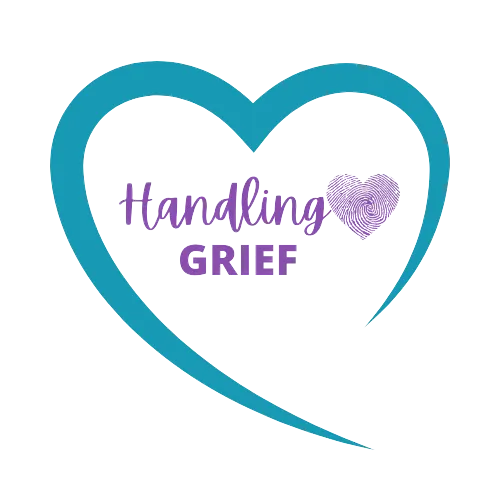Blog
Practical insights, honest reflections, and compassionate guidance for navigating grief and life's challenges. Here you'll find articles that help you understand what you're going through and give you tools to move forward with hope.

Grieving the Loss of a Dream or Opportunity: A Guide to Healing
Grief doesn’t only follow death. It often shows up when something important ends—like a dream, a career path, or a life-changing opportunity. This is known as disenfranchised grief—a type of grief that society doesn’t always recognise but can cut just as deeply.
If you’ve lost a job you loved, missed out on a promotion, closed a business, or had a long-held goal fall apart—you may feel sadness, anger, even shame. This grief is real. And you’re not alone.
Natalie’s Story: When a Dream Collapses
Natalie Potts worked in retail for nearly 20 years, steadily climbing the ladder. She was a top performer and expected a well-deserved promotion. But during the interview, she was challenged unfairly by someone on the panel—and didn’t get the role.
The shock hit hard. Natalie felt misunderstood, dismissed, and deeply hurt. The loss triggered depression, anxiety, and a crisis of identity. She left the company soon after, believing she couldn’t stay in a place that no longer felt like home.
Starting her own coaching business should have been exciting, but unresolved grief followed her. She had lost more than a promotion—she’d lost her sense of belonging, purpose, and future vision.
Friends didn’t always get it. “It’s just a job,” they said. “At least no one died.” But grief doesn’t wait for death. When dreams end, it hurts.
That’s when Natalie reached out. Together, we worked through the grief using tools that helped her heal—and move forward.
What Is Disenfranchised Grief?
Disenfranchised grief happens when your loss isn’t publicly acknowledged or validated. It often includes:
Career setbacks
Missed opportunities
Failed ventures
Retirement
Life plans that didn’t happen
Because it doesn’t fit the “normal” image of grief, people might dismiss your feelings. But the pain is just as real—and deserves space and support.
Signs You’re Grieving a Lost Dream
Deep sadness or disappointment
Anger, resentment, or blame
Loss of confidence or direction
Difficulty moving forward
Feeling misunderstood or judged
Physical symptoms like fatigue or anxiety
How to Begin Healing
Acknowledge Your Feelings
Grief from a lost opportunity is valid. Don’t minimise it or compare it to others’ losses. Your emotions matter.
There’s no hierarchy in grief. We all feel ours at 100%.
Talk About It
Share what you’re going through with people who get it—trusted colleagues, friends, or a grief professional. You don’t need to carry this alone.
Adjust Your Expectations
Let go of what “should” have happened. Reflect on what matters now and create a new plan that fits your life today.
Practise Self-Compassion
Be kind to yourself. Speak gently, avoid harsh self-criticism, and remember: your worth is not tied to one outcome.
Your inner dialogue shapes your recovery. Watch your self-talk.
Get Professional Support
If the grief feels too big, speak to someone trained in loss. As a Grief Specialist, I help professionals identify and resolve the pain of unspoken grief—so they can reclaim their focus, confidence, and peace of mind.
Create a Closure Ritual
Say goodbye to the dream. Write a letter, light a candle, or take symbolic action to honour what was lost. Rituals help you let go with intention.
Stay Open to What’s Next
Healing creates space. Natalie found clarity and purpose in her business after addressing the grief. New dreams can grow—but only when you give yourself permission to mourn the old ones.
You Deserve to Heal
Grieving a lost opportunity isn’t about weakness—it’s about truth. You expected more, hoped for better, worked hard. When it didn’t happen, a part of you broke. Let’s mend that part with care, clarity, and support.
💬 Ready to explore where you are in your grief journey?
Read my article "Is Unresolved Grief Holding You Back" and take the free quiz to reflect on how you’re coping—or book a free discovery call for personal support.
You don’t have to navigate this alone. Help is here when you’re ready.
Want to collaborate?
Let's talk. I'd love to hear how we can support each other.
Connect with me
Find me on social media or drop me a message. I'd be happy to connect and answer any questions you might have.
© Copyright 2026. Ghulam Fernandes. All rights reserved.

